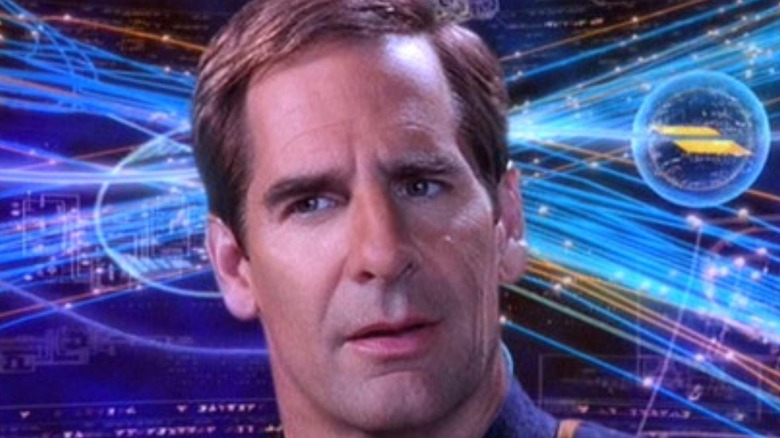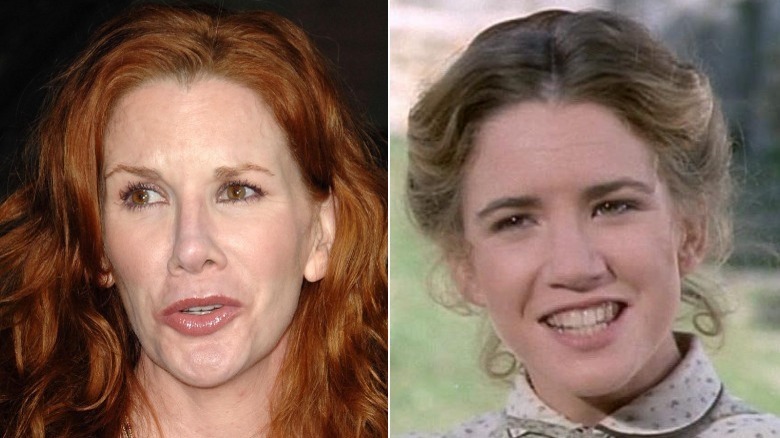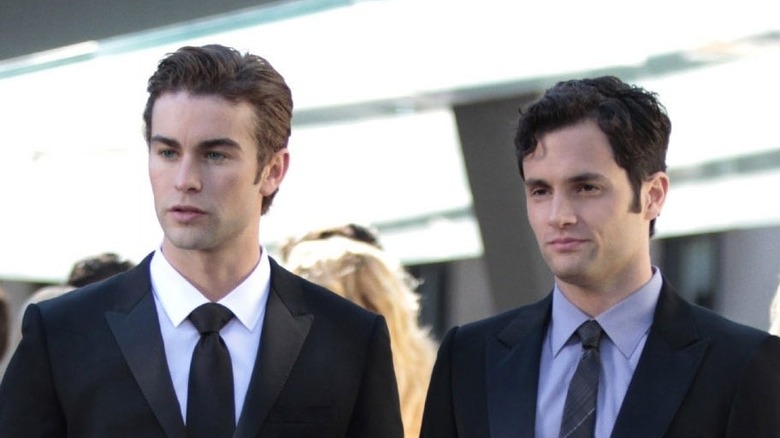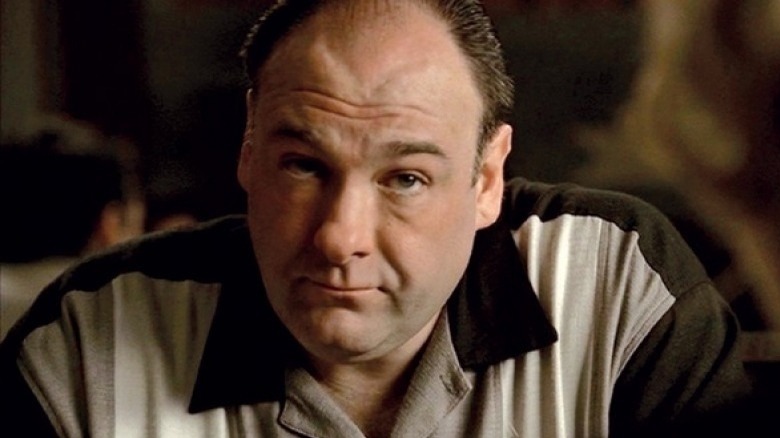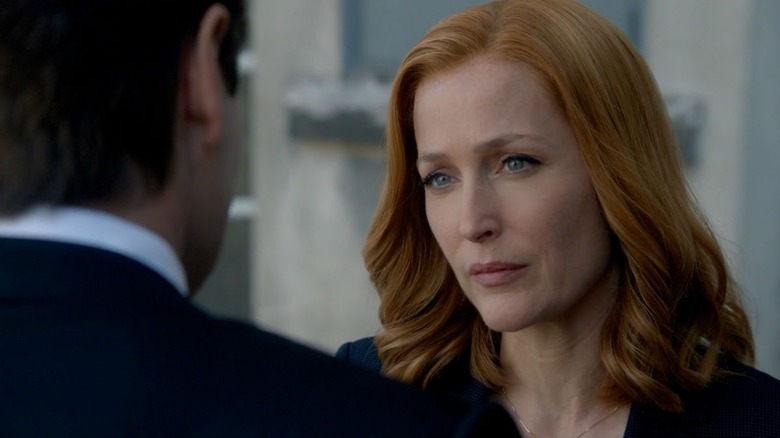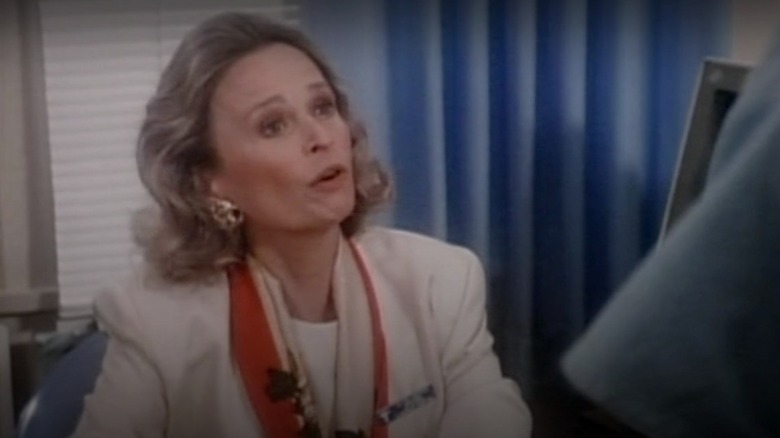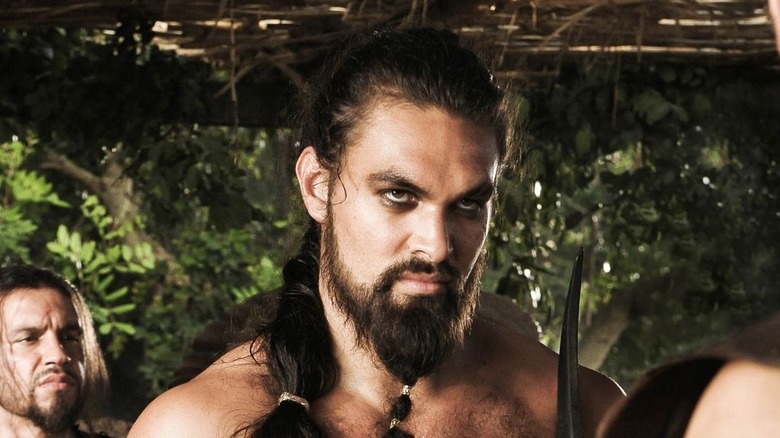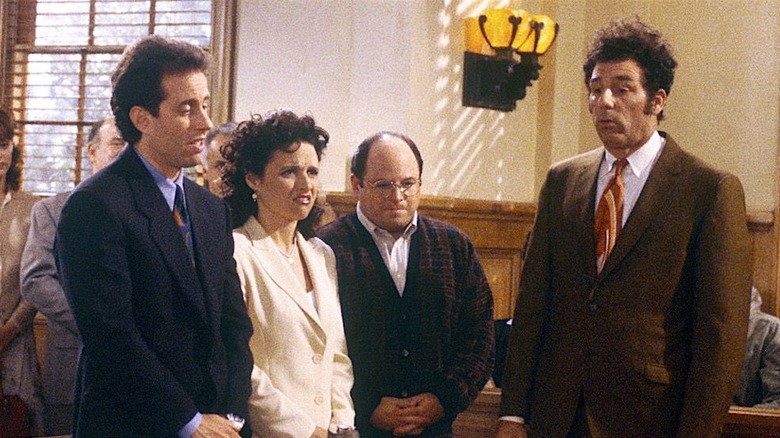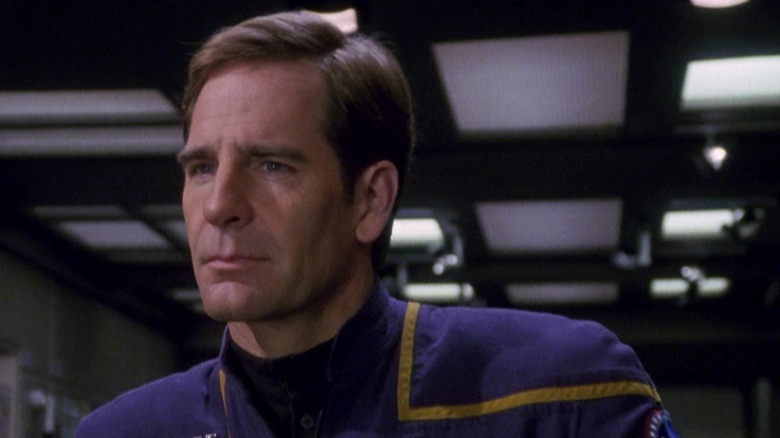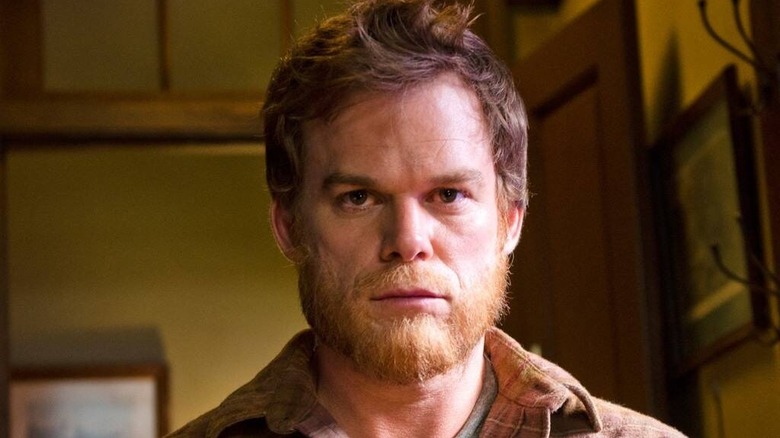Actors Who Hated Their TV Series Finales
One of the hardest things to do with a TV series is to end it. To give something that satisfies the most people, you need to make some kind of dramatic change. A long term goal needs to be achieved or a beloved character needs to change dramatically, perhaps even die. You need something big that will make the viewers feel they haven't wasted all the time they've spent watching.
But at the same time, whatever happens, not only does it need to make sense and be supported by what came before, but if it's too dramatic a change then whether or not it's supported by the canon, some viewers will cringe. After all, to become invested in any ongoing story is to get accustomed to a certain status quo, and smashing that status quo in a finale can come off as genius, or it can feel like desperation.
It isn't just the fans you might anger, either. Spending years on the same show can have a powerful impact on the lives of the actors involved, and their emotional attachment to how their story ends will be equally strong. While most of them handle their disappointment diplomatically and, at first, quietly, given enough time actors upset by their own series finales will let you know about it. Whether it was because of questionable story choices, confusion, or simply because saying goodbye hurts, the following actors hated their series' finales.
Melissa Gilbert saw the place she grew up destroyed
Technically, NBC's Western drama "Little House on the Prairie" concluded with the 1983 episode "Hello and Goodbye," but in spite of already being on the air for nearly a decade, "Little House" wasn't quite done yet. Three TV movies followed and while "Little House: Bless All the Dear Children" aired later in 1984 because of its Christmas themes, the true end of the story was "Little House: The Last Farewell."
"The Last Farewell" is a surprisingly apocalyptic time for the town of Walnut Grove. The land baron Nathan Lassiter (James Karen) buys up the entire town. The townsfolk decide they would rather see the town destroyed than hand it over to Lassiter and, with the aid of John Carter's (Stan Ivar) dynamite, they make it happen. When you see the buildings blow up on the screen, those aren't new or replacement sets — they destroyed the actual buildings that appeared on the series, for close to a decade.
Speaking to the Television Academy Foundation in 2011, Melissa Gilbert — who was 10 when she started playing Laura Ingalls Wilder and 20 during "The Last Farewell" — said she was "crushingly sad" because of the destruction. "There were all of these buildings ... that I grew up in and around," Gilbert recalled. She added, "I got my first kiss behind the church — for real, in real life ... there were just so many things that happened there ... and it was just gone."
At least two Gossip Girl stars think the finale made no sense
While there's a "Gossip Girl" sequel series head for HBO Max, the teen drama that originally aired on The CW came to a close with its sixth season in 2012 in a reveal that disappointed a lot of fans. The less-affluent Brooklyn native Dan Humphrey (Penn Badgley) outs himself as the titular blogger, whose rumors cause so much drama in the series for Dan's loved ones, including sometimes putting them in real danger. Not only were fans unhappy, but critics like Cosmopolitan's Emma Dibdin continue to write about why the reveal was ridiculous.
Speaking to each other as part of Variety's "Actors on Actors" series, both Badgley and Chace Crawford agreed with the overwhelming majority of fans and critics that Dan didn't fit the role of the mystery blogger. Crawford asked his former co-star point blank, "At the end of 'Gossip Girl' the show, whatever your reaction is on whether it was smart to do that or not, that he's Gossip Girl — it didn't really line up with the character of Dan. Right?" Badgley answered simply, "Yeah."
Speaking to E! after the finale, "Gossip Girl" executive producer Stephanie Savage said it was always the plan for Dan to be revealed as the blogger, but since then other creators have contradicted her. In 2019, another series executive producer, Joshua Safran, said the original plan was for Eric (Connor Paolo) to be the blogger, but too many fans figured it out too early. Nate (Crawford) was considered as a replacement for a time, but it eventually fell on Dan.
The finale to The Sopranos didn't make its star happy
When "The Sopranos" series aired its much-anticipated finale in 2007, the last scene proved to be confusing and frustrating to many of the show's fans — and also, as it turned out, the series star.
Speaking to Vanity Fair in 2012 (via The Daily Mail), "Sopranos" lead James Gandolfini said, "When I first saw the ending, I said, 'What the f—.'" The actor added, "I mean, after all I went through, all this death, and then it's over like that?" To be fair, this wasn't Gandolfini's final reaction. He said that after "a day of sleep," he reconsidered things. Gandolfini recalled, "I just sat there and said: 'That's perfect.'"
Tony Soprano's therapist, on the other hand, wasn't quite as forgiving. Lorraine Bracco told Vanity Fair she "would have ended it differently," while admitting that considering how long people have been talking about the ending, if nothing else it certainly proved thought-provoking.
For years it was theorized that the moment the screen cuts to black, Tony is killed by a mob button man, and those theories were proven correct in 2020. As People reported, "The Sopranos" creator David Chase let the truth slip during an interview for an upcoming book. Asked about the final scene, Chase referred to it as "that death scene." When the interviewer pointed out what Chase had said, Chase responded ... well, with the same kinds of words that you'd expect Tony Soprano to use.
Gillian Anderson agreed with the critics of the X-Files series finale
The Season 11 finale "My Struggle IV" was not meant to end the series. Having originally ended its 9-season run in 2002, "The X-Files" was revived at Fox in 2016 but it didn't last another 9 seasons. One of the biggest reasons the show finally went off the air and stayed off was Gillian Anderson's announcement that she was finally done with Dana Scully during an interview session at the 2017 New York Comic-Con. Considering how the series ends, you can hardly blame her.
Overall, nothing Scully does in the episode makes any kind of sense. Her son William (Miles Robbins) seemingly dies, yet she hardly seems to care, calling him "an experiment." The mysterious Cigarette Smoking Man (William B. Davis) is killed for about the third or fourth time. By the end of the episode, it's revealed that Scully is, once again, pregnant.
Jill Pantozzi from i09 was not the only fan who hated "My Struggle IV," but she did a great job outlining everything wrong with the episode. Pantozzi wrote, "Chris Carter let Scully languish this entire episode only to use her as a baby vessel again. Because, you know, that's apparently all she's good for."
Anderson has never publicly said she hated the episode. However, after the finale aired and Twitter lit up with plenty of fans expressing opinions similar to Pantozzi's, Anderson tweeted a gif of her character looking annoyed, accompanied with "Oh boy oh boy do I ever hear you."
St. Elsewhere didn't leave all of its cast members happy
One of the most surprising TV series finales ever to air was "The Last One" — the final episode of the popular NBC medical drama "St. Elsewhere." In the final few minutes of the series, viewers discovered that all six seasons of stories have not taken place in the real St. Eligius, but in the mind of young Tommy, the son of ... well, viewers knew him as Dr. Donald Westphall (Ed Flanders), but he was actually a construction worker. As it turned out, every day while Donald was at work, Tommy would sit on their living room floor staring into a snow globe containing a miniature of St. Eligius, thinking up all the stories viewers watched. Until Donald comes home, he's cared for by his grandfather — whose name we never learn, but was portrayed by the late Norman Lloyd, who played Dr. Daniel Auschlander on the series.
During a cast reunion arranged by Entertainment Weekly in 2012, Lloyd made his feelings on the finale clear when he called it "a cheat." Lloyd told EW "We went through this experience and I wanted it to be maintained as a real one, not a dream."
In the meantime Bonnie Bartlett, who played Dr. Mark Craig's (William Daniels) wife Ellen, was far less kind. She said the writers crafted the ending they did so "St. Elsewhere" could never be revived. Bartlett recalled, "I was very upset. I thought it was terrible. A terrible ending!"
The Game of Thrones finale made Jason Momoa channel Khal Drogo
Jason Momoa's "Game of Thrones" character Khal Drogo doesn't survive to see the show's third season, but clearly Momoa still felt invested in the series. When the finale aired in 2019, Momoa live-streamed his reactions as he watched. If Kit Harington happened to be watching Momoa's live-stream, he may have needed to change his pants.
As you can see on the recording provided by Business Insider, when Jon Snow (Harington) kills Daenerys (Emilia Clarke) — widow to Momoa's Khal Drogo — Momoa starts getting very NSFW. He swears angrily a number of times including at one point, presumably addressing Snow, saying "f— you, punk."
Momoa explained why he was angry after the show ended, though he was still swearing up a storm. The actor shared on Instagram, "I feel lost, I'm lost. What the f—! Drogon should've f—ing melted his a–!"
As you may remember if you've seen the finale, while Jon Snow fully expects to be killed by Drogon, instead the dragon destroys the Iron Throne with his flames, picks up Daenerys' corpse, and flies away. Possibly the fact that Drogon is named for Momoa's character added to the sting the actor felt at its failure to get vengeance on Snow.
Jerry Seinfeld regrets the existence of a Seinfeld finale
The final episode of the hit sitcom "Seinfeld" — named simply "The Finale" — remains a divisive one among fans. Courtesy of NBC, Jerry and the gang take a private jet to Paris but it's forced to make an emergency landing in Latham, Massachusetts. While killing time in the small town, Jerry and co. witness a carjacking and rather than lift a finger to help, they characteristically make fun of the victim's weight and Kramer (Michael Richards) video tapes the crime for fun. Because of a new Good Samaritan law, all four are arrested for criminal indifference and at trial many of the people they've wronged throughout the series testify to all of the lead characters' moral failings.
Nineteen years after the finale at the 2017 New Yorker Festival (via Vulture), Jerry Seinfeld admitted to the audience that he sometimes regrets that the finale even exists — not that the show ended, but that he bowed to what he called "the pressure to do one big last show." Seinfeld said "big is always bad in comedy" and that comedy should always be "small and cheap and quick." He added that was why, in his opinion, comedy always worked better on TV than in movies, "because you don't have that much time and that much money."
Scott Bakula hated the Star Trek: Enterprise more than he often admits
While it's impossible to completely measure something like this, "These Are the Voyages..." — the final episode of the prequel series "Star Trek: Enterprise" — is probably the most thoroughly-despised series finale in all "Star Trek" fandom.
A big reason for the hate is that the cast of "Enterprise" play second fiddle to stars of another series: "Star Trek: The Next Generation." Most of the story unfolds over 200 years after the events of "Enterprise," on the holodeck of the Enterprise-D. The episode acts as an untold chapter of the Season 7 "TNG" episode "The Pegasus" with Commander Riker (Jonathan Frakes) using the story of Jonathan Archer (Scott Bakula) to help him make an important decision.
In public, Bakula is typically measured about his feelings on the finale. But according to just about everyone else involved with "These Are the Voyages...," at the time it was being made, Bakula was understandably furious.
At 2017's Star Trek Las Vegas event (via TrekMovie), along with adding that he regretted the direction the finale went in, "Enterprise" showrunner Brannon Braga said "it was the only time Scott Bakula was ever mean to me." At the 2011 Central Canada Comic-Con (via High-Def Digest), Frakes said that his involvement in the finale was pitched to him as "a Valentine to the fans," but that "all it ended up doing, I think, was hurting Scott Bakula's feelings."
Michael C. Hall wasn't happy about the Dexter finale
Based on the book series by Jeff Lindsay, the Showtime crime drama "Dexter" had a tantalizingly dark premise: Played by Michael C. Hall, Dexter is a serial killer who stalks and kills murderers. But the series concluded its eight seasons with what is generally considered one of the worst TV series finales ever.
The story was borderline cruel in terms of viewer expectation, making fans think Dexter's sister Deb (Jennifer Carpenter) would survive the gunshot from the previous episode, only to instead have her rendered brain dead by a stroke. Dexter euthanized and dumped her body in the ocean, just like he did with so many victims over the years. Rather than facing any kind of consequences for his years of murder, Dexter faked his own death, winding up a lumberjack in Oregon.
Like a lot of actors, Hall has been very diplomatic over the years in recounting his own feelings about the finale. But in a 2014 Reddit AMA, when asked what his reaction was to first reading the script for "Remember the Monsters?", Hall admitted his feelings were "probably sadness." He also told The Daily Beast in January 2021 that one of the chief reasons he finally agreed to the revival series "Dexter: New Blood" was to make up for the "unsatisfying" finale of the original series.
